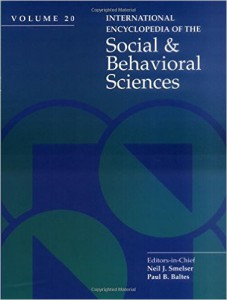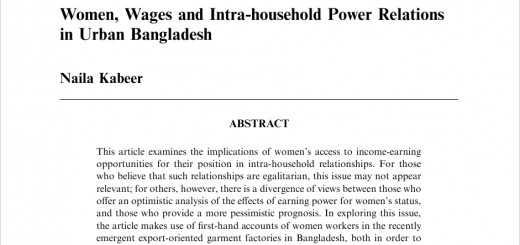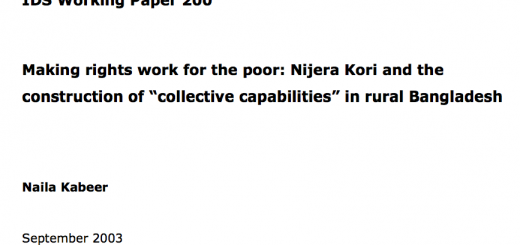‘Family bargaining’ in International Encyclopaedia of the Social and Behavioural Sciences’ (co-edited by Neil Smelser and Paul Bates) Elsevier Press
 This article reviews different social science approaches to the analysis of bargaining in the specific context of family-based households. Economic approaches have tended to focus on ‘the household’ and to treat its members as a set of individuals, differentiated by their economic characteristics and genetic endowments. While economic models of bargaining have yielded a number of useful insights into how decisions get made at the household level, they have been limited by their failure to take account of the specific set of social relations which distinguish the household as a social organization from other organizations in a society: the social relations of family and kinship. Despite the structured inequalities often built into household relationships, the fact that members of a household are usually related to each other by blood or marriage means that bargaining within the family tends to draw on relational as well as material resources, on love, affection, and loyalty as well as on the more naked exercise of power through violence, coercion, and command. The article illustrates this distinctive aspect of family bargaining by drawing on the literature on the gender dynamics of household decision-making.
This article reviews different social science approaches to the analysis of bargaining in the specific context of family-based households. Economic approaches have tended to focus on ‘the household’ and to treat its members as a set of individuals, differentiated by their economic characteristics and genetic endowments. While economic models of bargaining have yielded a number of useful insights into how decisions get made at the household level, they have been limited by their failure to take account of the specific set of social relations which distinguish the household as a social organization from other organizations in a society: the social relations of family and kinship. Despite the structured inequalities often built into household relationships, the fact that members of a household are usually related to each other by blood or marriage means that bargaining within the family tends to draw on relational as well as material resources, on love, affection, and loyalty as well as on the more naked exercise of power through violence, coercion, and command. The article illustrates this distinctive aspect of family bargaining by drawing on the literature on the gender dynamics of household decision-making.



